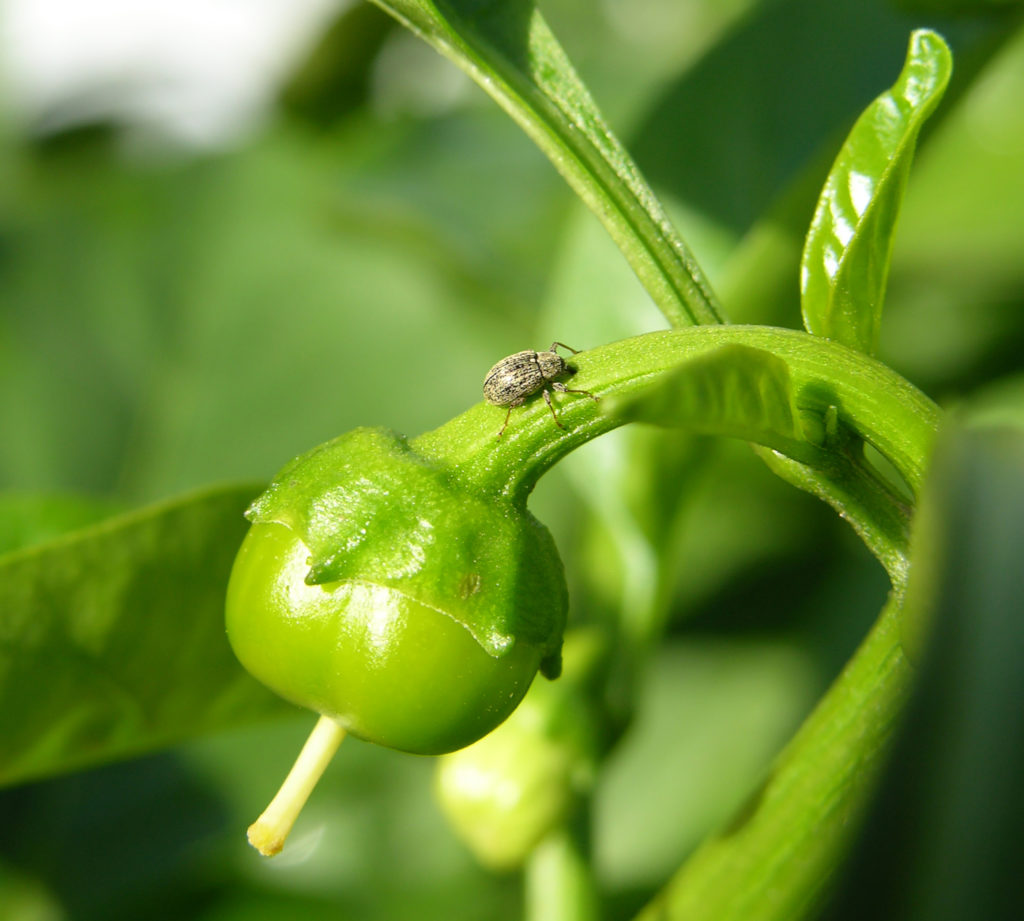By Clint Thompson
It is better for growers to be proactive instead of reactive when managing pepper weevils in their vegetable crops. That is the approach Southeast growers should utilize this spring, says Stormy Sparks, University of Georgia Extension vegetable entomologist.
“Pepper weevils, we are definitely overwintering them. We’ve documented that for the last three or four years now where we used to not overwinter populations. They were much more spotty in the past,” Sparks said. “It’s much more of a management of that pest in every crop, spring and fall. Growers are having to pay much more attention. They’re having to pay a lot more money on trying to manage that pest.

“It’s another one that’s extremely difficult to manage. If you get behind, it’s almost impossible to catch up. It’s much more of a preventative program more so than many of our insect management programs. Once they get established in the field, it’s almost impossible to eliminate them.”
Sparks said there are a limited number of pesticides available that are relatively effective, which makes preventative protection the best course of management for growers.
Actara, Vydate, diamides and pyrethroids can be used in a program to control the pepper weevil.
There are various factors for farmers to consider if they hope to disrupt the weevil’s life cycle. Proper sanitation and a crop-free period, if it’s accompanied by the destruction of alternate hosts can be effective. Sanitation involves any practice that eliminates or reduces the amount of pathogen inoculum, pests, or weed seeds that are still present in the field.










